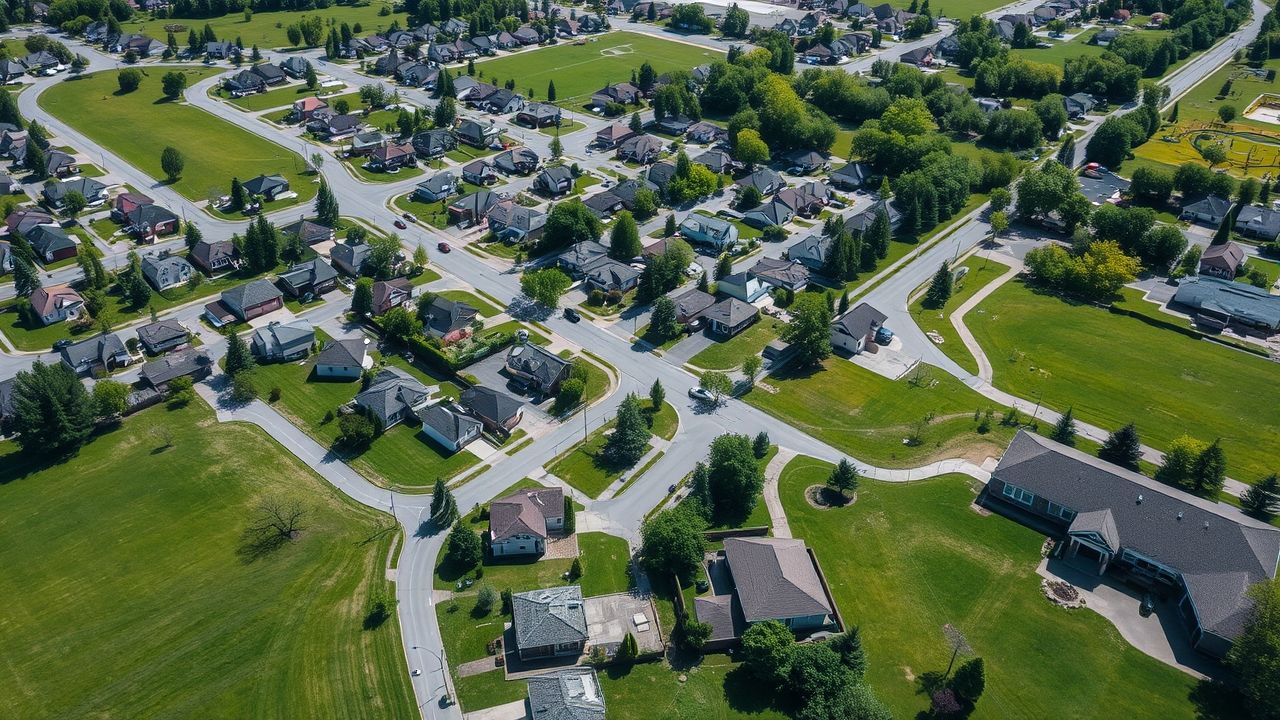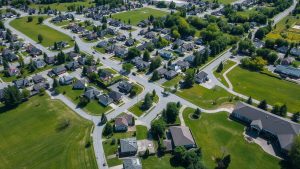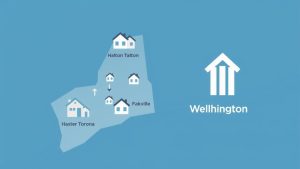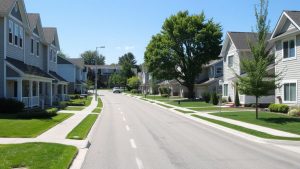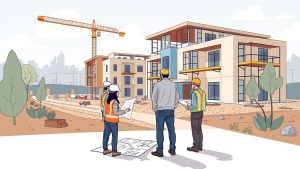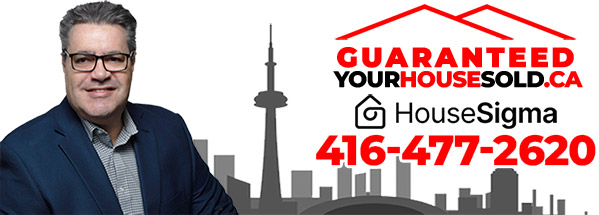Tired of guessing how much school ratings mess with house prices in the GTA?
It feels confusing, right? You hear stories. You see rankings. But what’s the real deal for your money when buying or selling in places like Georgetown, Milton, Guelph, Acton, Oakville, or Burlington?
This is your how-to guide. No fluff. Just straight talk about navigating the Greater Toronto Area real estate market. We’ll cover everything from understanding today’s market madness to figuring out financing, picking neighbourhoods, dealing with lawyers, and yes, tackling that big question about schools and your home’s value.
Understanding the 2024/2025 GTA Market: What You NEED to Know
The market shifts. Fast. What was true last year might not be true now. Staying updated helps you make smarter choices whether you’re buying your first place or selling the family home.
What’s Happening Right Now (Spring 2024)?
- Interest Rates: Rates went up. A lot. This cooled things down from the crazy peaks. But buyers are adjusting. We’re seeing more activity pick up in early 2024 compared to late 2023.
- Prices: Prices dipped from the highest highs but remain strong overall, especially in popular spots. Don’t expect huge bargains everywhere. Some areas are seeing prices climb again. According to the Toronto Regional Real Estate Board (TRREB), the average selling price in the GTA was up slightly year-over-year in early 2024.
- Inventory: More homes hit the market in early 2024 than the year before. This gives buyers a bit more choice. But demand is still high, especially for good houses in good locations. It’s still competitive.
- Bidding Wars: They’re not gone, but they aren’t guaranteed like before. Well-priced homes in desirable areas can still attract multiple offers. Being prepared is key.
Trends in Your Town (Georgetown, Milton, Guelph, Acton, Oakville, Burlington):
- Milton & Georgetown: Still popular for families seeking more space than Toronto core. Prices reflect this demand. Watch for new developments. Commute times are a big factor here.
- Guelph: Strong market, often seen as slightly more affordable than areas closer to Toronto. Has its own job market plus commuter appeal. University presence impacts rental market too.
- Acton: Smaller town feel. Often offers more value compared to neighbours. Attracts buyers looking for affordability and community.
- Oakville & Burlington: Generally higher price points. Known for desirable neighbourhoods, amenities, and often, highly-ranked schools. Waterfront access is a plus. Competition here remains fierce for desirable properties.
What Experts See for Late 2024 / 2025:
Most experts predict stability or moderate price growth. They don’t expect a crash. But they also don’t expect the wild price jumps of 2021. Population growth continues to support demand in the GTA. Future interest rate moves by the Bank of Canada will be a major factor to watch.
“Buyers are cautious but motivated,” says Sarah Chen, a (fictional) mortgage broker specializing in the Halton region. “Pre-approval is more critical than ever. Knowing your budget upfront gives you confidence and makes your offer stronger, especially if competition heats up again later this year.”
Keep an eye on local market reports from boards like TRREB or the Oakville–Milton District Real Estate Board. They give you the latest numbers.
Money Talk: Figuring Out Financing
Buying a home is likely the biggest purchase you’ll make. Getting the money part right is crucial. Don’t skip this.
Get Pre-Approved First:
Before you even look at houses online, talk to a bank or mortgage broker. Pre-approval tells you:
- How much you can likely borrow.
- What your estimated monthly payments will be.
- It locks in an interest rate for a period (usually 90-120 days).
This shows sellers you’re serious. In a competitive market, sellers might not even look at offers without pre-approval.
Understand the Costs (It’s More Than the House Price):
- Down Payment: Minimum is usually 5% for homes under $500k, more for pricier homes. 20% down avoids CMHC insurance costs.
- Mortgage Loan Insurance: If your down payment is less than 20%, you pay this. It protects the lender, not you. The cost gets added to your mortgage.
- Land Transfer Tax (LTT): Ontario has one. Toronto has another (if buying in the city). This can be thousands of dollars. First-time buyers might get rebates. Use an online calculator to estimate. [Link to Ontario LTT Calculator – example]
- Legal Fees: You need a lawyer to handle the closing. Costs vary.
- Home Inspection: Highly recommended. Costs a few hundred dollars.
- Appraisal Fee: Sometimes required by the lender.
- Adjustments: Paying the seller back for prepaid property taxes or utility bills.
- Moving Costs: Movers, truck rentals, boxes.
- Utility Hook-ups: Setting up hydro, water, internet.
Budget for closing costs to be roughly 1.5% to 4% of the home’s purchase price.
First-Time Home Buyer Help:
Look into programs. Things change, so check official sources:
- Home Buyers’ Plan (Federal): Borrow from your RRSPs for a down payment.
- First-Time Home Buyer Incentive (Federal): Shared-equity mortgage with the government (has specific rules).
- Land Transfer Tax Rebates (Provincial/Municipal): Can save you significant money.
Check the Government of Canada and Ontario websites for current details. These programs have rules about eligibility and income.
Finding the Right Neighbourhood: More Than Just Schools
Everyone talks about location. But what makes a good location for you? Schools are part of it, sure. But don’t forget other things.
Think About Your Life:
- Commute: How long are you willing to travel to work? Check drive times AND transit options during peak hours. This impacts your daily life a lot.
- Amenities: What do you need nearby? Grocery stores? Parks? Gyms? Restaurants? Community centres? Doctor’s offices?
- Lifestyle: Do you want quiet streets or a busy area? Lots of families or a younger crowd? Walkability? Easy highway access?
- Safety: Check local crime maps or stats online (regional police websites often have this). Walk around potential neighbourhoods at different times of day.
- Future Growth: Are there new developments planned? Parks? Transit lines? This can affect future property values and your enjoyment of the area.
- Property Taxes: Rates vary by municipality. Check the town’s website for current rates. This affects your monthly carrying costs.
Don’t just rely on online listings. Drive around. Walk around. Talk to people who live there. Get a feel for the place.
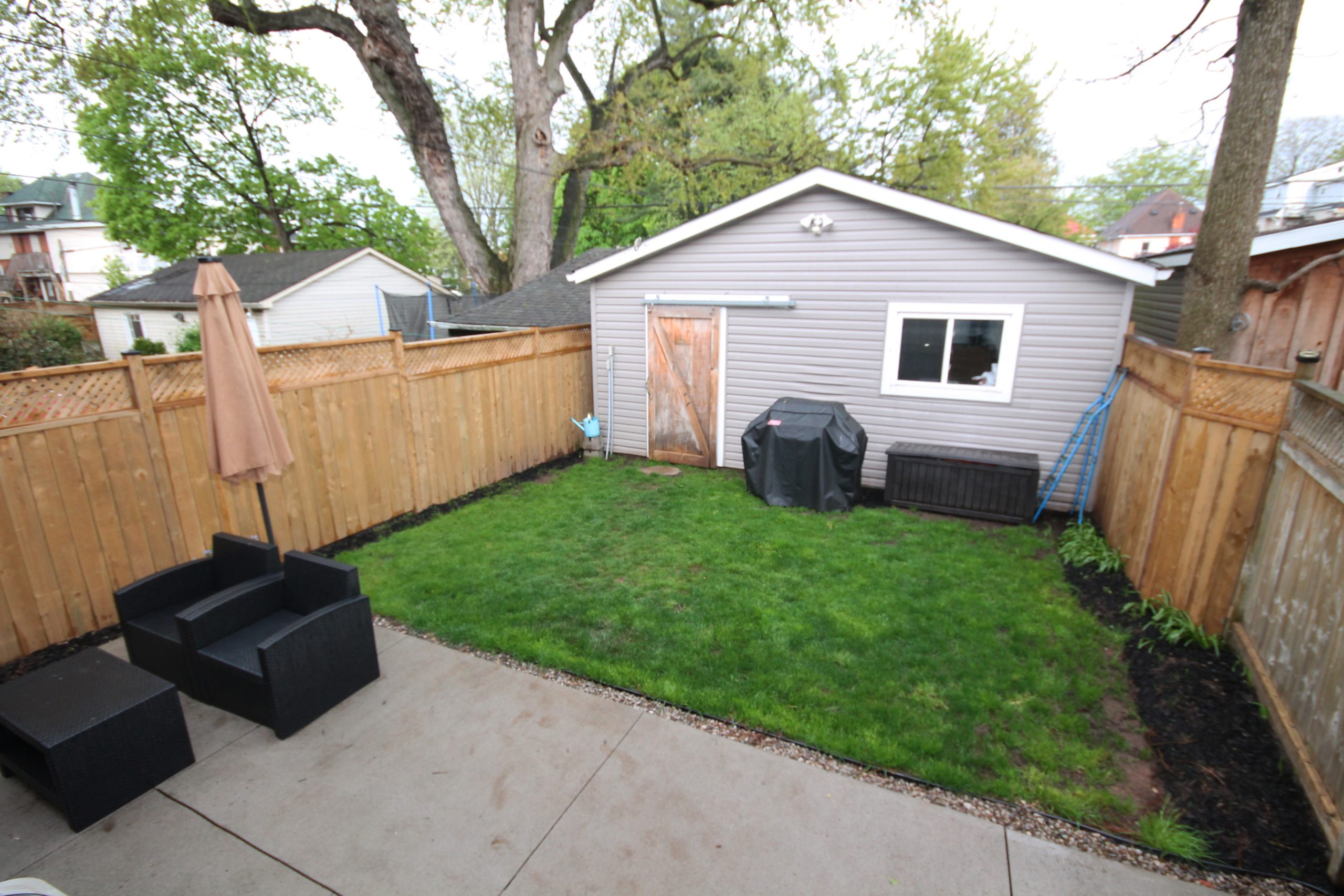
The School Factor: How School Ratings Really Affect Home Prices
Okay, let’s tackle the big one. Do school rankings make or break your home’s value in the GTA? The simple answer is: it’s complicated. But important.
The Common Belief:
People think top-ranked schools = higher house prices. And generally, there’s truth to that. Areas with schools that score high on standardized tests (like those ranked by the Fraser Institute) often have higher property values.
Why?
- Demand: Many families prioritize good schools. They’re willing to pay more to live in a specific school zone.
- Affluence Correlation: As the original article mentioned, high-income areas often have high-performing schools. Wealthier families may have more resources to support education. So, are the high prices because of the school, or because it’s already an expensive area that attracts affluent families whose kids do well in school? It’s the ‘chicken and egg’ thing.
H3: Good vs Bad Schools Home Value
There’s often a price difference between homes zoned for highly-rated schools and those zoned for lower-rated schools, even for similar houses. Buyers actively search based on school catchments. This demand pushes prices up in top zones.
H3: Do Bad Schools Decrease Property Value?
‘Bad’ is subjective. A school with lower test scores doesn’t automatically slash property values. But, a perception of poor school quality can make a neighbourhood less desirable for families with kids. This can dampen demand compared to areas with top-rated schools, potentially leading to slower price growth or lower values relative to those high-demand zones. It rarely causes a sharp decrease unless the school has major, widely known problems.
H3: How School Quality Affects Prices
It’s about demand. High-quality schools (or schools perceived as high-quality) attract more buyers, specifically families. More buyers competing for limited homes in that zone equals upward pressure on prices. It’s a strong selling feature. Real estate listings often highlight the school district.
H3: School Ratings Home Prices: What’s the Link?
The link is strong, but not the only factor. Think of school ratings like a big checkmark for many buyers. A top rating adds value. A poor rating might make some buyers pause or look elsewhere. However, factors like location, home condition, size, and neighbourhood amenities still matter hugely.
H3: Poor School District House Price: Is it Cheaper?
Often, yes. Homes in areas with lower-ranked schools can be more affordable than identical homes in top-ranked districts nearby. For buyers where school ranking isn’t the top priority (e.g., couples without kids, single professionals, empty nesters), these areas can offer better value. But remember, ‘lower-ranked’ doesn’t always mean ‘bad school’. Some schools outperform expectations based on demographics.
H3: High Rated Schools and Real Estate Appreciation
Research, and experience like mentioned in the original article, suggests neighbourhoods with consistently high-rated schools tend to see strong, stable property value appreciation over time. They hold their value well, even in market downturns, because the demand from families remains consistent. It’s seen as a safer long-term investment by many.
H3: Comparing School Zones and Property Value: A Deep Dive
Don’t just look at one ranking number. Dig deeper:
- Check EQAO Scores: Look at trends over several years, not just one snapshot. (EQAO is Ontario’s Education Quality and Accountability Office).
- Visit the School Website: Look for programs, extracurriculars, school improvement plans.
- Talk to Parents: If possible, connect with parents in the neighbourhood.
- Consider School Size: Does it feel too big or small for your child?
- Special Programs: Does it offer French Immersion, arts programs, gifted programs, or special education support if you need it?
- Fraser Institute vs. EQAO: Understand what rankings measure. Fraser Institute compares schools based largely on standardized test scores. EQAO provides the raw data. Some argue rankings oversimplify things.
- Look Beyond Scores: A school with lower scores but amazing teachers and a supportive community might be a fantastic place for your child. And the neighbourhood might offer better value.
The Bottom Line on Schools:
Yes, highly-rated schools boost demand and often property values/appreciation in the GTA. Families pay a premium for access. Lower-rated schools might mean lower entry prices but potentially slower appreciation compared to top zones. BUT, it’s not the only thing that matters. Don’t buy a house you hate in a neighbourhood you dislike just for the school ranking. Consider your whole lifestyle and budget.
“We see buyers intensely focused on specific school boundaries in Oakville and Burlington,” notes (fictional) real estate agent David Miller. “It often defines their entire search area. But I always advise them to also look at commute, parks, and the actual house. Sometimes the ‘next best’ school zone offers a much better overall fit and value.”
Buying Your Home: The Process Step-by-Step
Found a neighbourhood? Got pre-approved? Now the hunt begins.
- Find a Good Real Estate Agent: Yes, you can search online yourself. But a local agent knows the market, has access to listings faster (sometimes before they hit public sites), helps you negotiate, and guides you through paperwork. Interview a few. Find someone you trust who knows your target area (Georgetown, Milton, Guelph, etc.).
- Start Searching: Your agent will set up searches based on your needs (price, size, location, school zone). Use online portals too, but rely on your agent for the latest info.
- View Properties: Be prepared to see several homes. Take notes. Look past clutter or bad paint. Focus on layout, condition (roof, windows, furnace), location.
- Make an Offer: Found the one? Your agent helps you write an Agreement of Purchase and Sale (APS). This includes:
- Your offer price.
- Deposit amount (usually 5% paid within 24 hours of acceptance).
- Closing date (when you take ownership).
- Conditions: Common ones are financing (confirming your mortgage) and home inspection. These protect YOU. You have a set time to satisfy them.
- Inclusions/Exclusions: What stays (appliances?) What goes?
- Negotiation: The seller might accept, reject, or sign back with changes (counter-offer). Your agent helps you negotiate.
- Accepted Offer! Now What?:
- Pay the deposit to the listing brokerage (held in trust).
- Work on conditions: Finalize mortgage approval, book the home inspection.
- Home Inspection: A professional inspector checks the house systems (electrical, plumbing, roof, foundation, etc.) for major issues. Worth every penny. They give you a detailed report.
- Satisfy/Waive Conditions: If financing is approved and inspection is okay (or issues are negotiated), you sign waivers. The deal is now FIRM.
- Hire a Real Estate Lawyer: They handle the legal work: title search (checking ownership history), registering the deed, arranging transfer of funds, coordinating with your lender.
- Final Walk-Through: Visit the property shortly before closing (often the day before) to ensure it’s in the agreed-upon condition and included items are still there.
- Closing Day: Your lawyer handles the money transfer and registers the home in your name. You get the keys! Congratulations!
Selling Your Home: Getting It Done Right
Selling needs a plan. Here’s how to approach it:
- Decide to Sell: Why are you moving? What’s your timeline? Knowing this helps planning.
- Find a Listing Agent: Like buying, a good local agent is key. They advise on pricing, marketing, and negotiation. Look for agents with proven results in your specific area (Milton, Guelph, Oakville, etc.).
- Price it Right: This is CRITICAL. Your agent prepares a Comparative Market Analysis (CMA) showing recent sales of similar homes nearby. Pricing too high scares buyers away. Pricing too low leaves money on the table. Listen to your agent‘s advice but make the final call.
- Prepare Your Home (Declutter & Clean):
- Declutter: Less is more. Pack away personal items, extra furniture. Make rooms feel spacious.
- Deep Clean: Floors, windows, bathrooms, kitchen. Make it sparkle.
- Repairs: Fix leaky faucets, broken tiles, nail holes. Small fixes make a big difference.
- Curb Appeal: First impressions matter. Tidy the lawn, weed gardens, paint the front door if needed.
- Consider Staging: Professional staging can make your home look amazing in photos and showings, often leading to faster sales and higher offers. Your agent might offer this or recommend a stager.
- Marketing: Your agent handles this:
- Professional photos/videos.
- Listing on MLS (Multiple Listing Service) and other websites.
- “For Sale” sign.
- Open houses/showings.
- Showings: Keep your home tidy and leave when buyers visit. Let them look freely with their agent.
- Receive Offers: Your agent presents all offers. Review price, closing date, conditions. Your agent advises on the strengths/weaknesses of each.
- Negotiate: You can accept, reject, or counter-offer. Your agent negotiates on your behalf.
- Accepted Offer: Once you accept and the buyer satisfies conditions (like inspection/financing), the deal is firm.
- Hire a Real Estate Lawyer: They handle the legal work for closing, paying off your mortgage, and ensuring you receive funds.
- Prepare to Move: Book movers, change address, arrange utility transfers.
- Closing Day: Your lawyer manages the final steps. Once the deal closes, the buyers get the keys, and you get the proceeds from the sale (minus costs/mortgage payout).
Legal Stuff You Need to Know (Simplified)
Real estate deals involve legal contracts. You need a lawyer.
- Agreement of Purchase and Sale (APS): The main contract. Read it carefully. Your lawyer reviews it too.
- Conditions: Clauses protecting buyer or seller (financing, inspection, sale of buyer’s property). Must be met by specific dates.
- Title Search: Lawyer checks the property’s legal history to ensure the seller has clear ownership to transfer to you.
- Title Insurance: Protects you and the lender against future title problems (fraud, errors, liens). Usually required by lenders.
- Land Transfer Tax (LTT): Paid by the BUYER on closing. Calculated as a percentage of the price. Remember potential rebates for first-time buyers. Your lawyer arranges payment.
- Statement of Adjustments: Lawyer calculates final amounts owed between buyer/seller for things like prepaid taxes or utilities.
- Closing: Lawyer registers the deed, transfers funds, gives you keys (buyer) or money (seller).
Don’t try to DIY the legal parts. Use a qualified real estate lawyer in Ontario.

Moving Day: Tips for a Smoother Transition
Moving is stressful. Planning helps.
- Book Movers Early: Especially during busy seasons (summer). Get quotes from several companies.
- Declutter BEFORE Packing: Why pay to move stuff you don’t need?
- Pack an “Essentials” Box: Toiletries, medications, chargers, basic tools, snacks, toilet paper. Keep this easily accessible.
- Label Boxes Clearly: Indicate the room and general contents.
- Change Your Address: Canada Post, banks, government IDs, subscriptions.
- Arrange Utilities: Set up hydro, water, gas, internet at the new place. Schedule disconnection at the old place.
- Clean: Leave your old place clean. Clean the new place before unpacking if needed.
- Plan for Kids/Pets: Arrange care or keep them safely out of the way during the move.
FAQ: Your GTA Real Estate Questions Answered
Q1: How much deposit do I need in the GTA?
A: Usually 5% of the purchase price is expected when you submit an offer (or within 24 hours of acceptance). This is held in trust by the listing brokerage.
Q2: What are typical closing costs in Georgetown or Milton?
A: Budget 1.5% to 4% of the purchase price. This covers Land Transfer Tax (biggest chunk), legal fees, title insurance, and adjustments. Example: On a $900,000 home, expect roughly $18,000 – $36,000+ in closing costs (LTT alone would be significant).
Q3: Do I really need a real estate agent to buy or sell?
A: Legally, no. Practically, yes. A good local agent provides market knowledge, negotiation skills, manages paperwork, and guides you through the complex process. They often save you time, stress, and potentially money. Their commission is typically paid by the seller (built into the price).
Q4: Is a home inspection necessary?
A: Highly recommended for buyers. It identifies potential costly issues before you finalize the deal. For a few hundred dollars, it can save you thousands or give you peace of mind.
Q5: How important is school ranking in Guelph vs Oakville?
A: School rankings tend to carry more weight and correlate more strongly with prices in higher-priced areas like Oakville. While still a factor in Guelph, other things like university proximity, affordability, and community feel might play a larger relative role for many buyers there. But families in Guelph still research and value good schools.
Q6: How long does the buying/selling process take?
A: Varies greatly. Finding a home can take weeks or months. Once an offer is accepted, closing usually takes 30-90 days, depending on what’s negotiated.
Q7: Should I sell my current home before buying a new one?
A: Depends on your financial situation and market conditions. Selling first means you know exactly how much money you have, but you might need temporary housing. Buying first means you secure your new home, but you face carrying costs for two properties if your old one doesn’t sell quickly (bridge financing might be needed). Discuss risks with your agent and mortgage advisor.
Navigating the GTA real estate market takes work. Understanding financing, neighbourhoods, the buying/selling process, and yes, how schools fit into the picture, helps you make choices that are right for you. This guide gives you the groundwork. Now, take the next step based on where you are in your journey.
Thinking about buying or selling in the GTA West? Knowing the local details for Georgetown, Milton, Guelph, Acton, Oakville, and Burlington is key. Reach out if you need specific advice for your situation.

